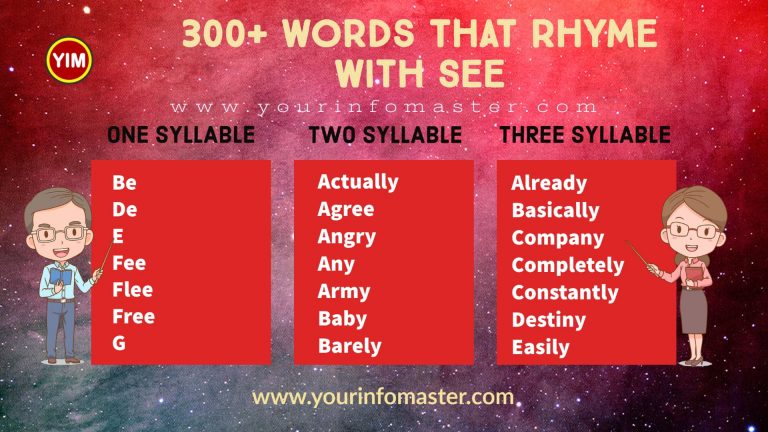In this article, I am going to explain the Spanish verb Leer Conjugation, Leer synonyms, Example Sentences with Leer, Antonyms for Leer, meaning and translation.
In the enchanting world of language, the verb “leer” takes center stage as a gateway to infinite possibilities. As we embark on this linguistic journey, we delve into the art of reading and discover the magic that lies within the pages of books. Join us as we explore the conjugation of “leer” and unravel the boundless realms of knowledge, imagination, and emotions that reading opens for us.
Check also: Spanish Verb Estar Conjugation, Meaning, Translation, Examples
What is the Meaning of Leer?
The essence of “leer” is grounded in the art of reading, enabling individuals to comprehend written words, extract meaning from texts, and delve into the boundless world of literature.
Real-World Examples
Example 1: Me gusta leer novelas de misterio. (I enjoy reading mystery novels.)
In this example, “leer” emphasizes the act of reading as a means of pleasure and escapism into the captivating world of mystery.
Example 2: Los niños leen cuentos antes de dormir. (The children read stories before bedtime.)
Here, “leen” showcases the simple yet significant act of reading that shapes a child’s imagination and fosters a love for literature.
List of Synonyms for Leer
- Descifrar (to decipher)
- Interpretar (to interpret)
- Estudiar (to study)
- Repasar (to review)
- Investigar (to research)
- Examinar (to examine)
- Analizar (to analyze)
- Absorber (to absorb)
- Percibir (to perceive)
- Escrutar (to scrutinize)
10 Sentences including Leer in Spanish
- Leo un libro interesante sobre la historia antigua. (I am reading an interesting book about ancient history.)
- Ella lee el periódico todas las mañanas. (She reads the newspaper every morning.)
- Los estudiantes leen poesía en la clase de literatura. (The students read poetry in literature class.)
- Mi abuelo lee novelas románticas en su tiempo libre. (My grandfather reads romantic novels in his free time.)
- Leí un artículo fascinante sobre el cambio climático. (I read a fascinating article about climate change.)
- ¿Has leído el último bestseller de este autor? (Have you read the latest bestseller by this author?)
- El profesor nos hace leer un capítulo cada semana. (The teacher makes us read one chapter every week.)
- Mis padres me enseñaron a leer antes de comenzar la escuela. (My parents taught me how to read before starting school.)
- No leo muchos libros de ciencia ficción, pero este me atrajo. (I don’t read many science fiction books, but this one intrigued me.)
- Lee el contrato cuidadosamente antes de firmar. (Read the contract carefully before signing.)
Check also: What is another word for Couple? | Couple Synonyms, Antonyms and Sentences
Leer Present Indicative
- Yo leo (I read)
- Tú lees (You read)
- Él/Ella/Usted lee (He/She/You read)
- Nosotros/Nosotras leemos (We read)
- Vosotros/Vosotras leéis (You all read)
- Ellos/Ellas/Ustedes leen (They/You all read)
Leer Preterite Indicative
- Yo leí (I read)
- Tú leíste (You read)
- Él/Ella/Usted leyó (He/She/You read)
- Nosotros/Nosotras leímos (We read)
- Vosotros/Vosotras leísteis (You all read)
- Ellos/Ellas/Ustedes leyeron (They/You all read)
Leer Imperfect Indicative
- Yo leía (I used to read)
- Tú leías (You used to read)
- Él/Ella/Usted leía (He/She/You used to read)
- Nosotros/Nosotras leíamos (We used to read)
- Vosotros/Vosotras leíais (You all used to read)
- Ellos/Ellas/Ustedes leían (They/You all used to read)
Leer Future Indicative
- Yo leeré (I will read)
- Tú leerás (You will read)
- Él/Ella/Usted leerá (He/She/You will read)
- Nosotros/Nosotras leeremos (We will read)
- Vosotros/Vosotras leeréis (You all will read)
- Ellos/Ellas/Ustedes leerán (They/You all will read)
Leer Periphrastic Future Indicative
- Yo voy a leer (I am going to read)
- Tú vas a leer (You are going to read)
- Él/Ella/Usted va a leer (He/She/You are going to read)
- Nosotros/Nosotras vamos a leer (We are going to read)
- Vosotros/Vosotras vais a leer (You all are going to read)
- Ellos/Ellas/Ustedes van a leer (They/You all are going to read)
Leer Conditional Indicative
- Yo leería (I would read)
- Tú leerías (You would read)
- Él/Ella/Usted leería (He/She/You would read)
- Nosotros/Nosotras leeríamos (We would read)
- Vosotros/Vosotras leeríais (You all would read)
- Ellos/Ellas/Ustedes leerían (They/You all would read)
Leer Present Progressive/Gerund Form
- Leyendo (Reading)
Leer Past Participle
- Leído (Read)
Leer Present Subjunctive
- Yo lea (That I read)
- Tú leas (That you read)
- Él/Ella/Usted lea (That he/she/you read)
- Nosotros/Nosotras leamos (That we read)
- Vosotros/Vosotras leáis (That you all read)
- Ellos/Ellas/Ustedes lean (That they/you all read)
Check also: What is another word for Cheerful? | Cheerful Synonyms, Antonyms and Sentences
Leer Imperfect Subjunctive
- Yo leyera/leyese (If I read)
- Tú leyeras/leyeses (If you read)
- Él/Ella/Usted leyera/leyese (If he/she/you read)
- Nosotros/Nosotras leyéramos/leyésemos (If we read)
- Vosotros/Vosotras leyerais/leyeseis (If you all read)
- Ellos/Ellas/Ustedes leyeran/leyesen (If they/you all read)
Leer Imperative
- Affirmative:
- Tú lee (Read)
- Vosotros/Vosotras leed (You all read)
- Negative:
- Tú no leas (Don’t read)
- Vosotros/Vosotras no leáis (You all don’t read)
Conclusion
As we come to the end of our exploration, let us appreciate the significance of the verb “leer” in fostering a love for learning, expanding our horizons, and embracing the vastness of human knowledge. Let “leer” be your constant companion on the journey of self-discovery through the realms of literature and wisdom. Open the doors of perception and delve into the enchanting world that reading offers, for “leer” is the key that unlocks the boundless potential of the human mind. Happy reading!
If you really enjoyed the article about “Spanish Verb Leer Conjugation,” then I would be very grateful if you’d help it spread by emailing it to your friends or sharing it on Twitter, Instagram, or Facebook. Thank you!
Have you read “Example Sentences with Leer?” Which of these blogs are you reading, and how is it similar to one of them?
Read More
- Spanish Verb Dar Conjugation, Meaning, Translation, Examples
- What is another word for Dark? | Dark Synonyms, Antonyms and Sentences
- What is another word for Diverse? | Diverse Synonyms, Antonyms and Sentences
- What is another word for Discuss? | Discuss Synonyms, Antonyms and Sentences
- What is another word for Development? | Development Synonyms, Antonyms and Sentences
- What is another word for Despite? | Despite Synonyms, Antonyms and Sentences
- What is another word for Demonstrate? | Demonstrate Synonyms, Antonyms and Sentences
- What is another word for Develop? | Develop Synonyms, Antonyms and Sentences
- Spanish Verb Conocer Conjugation, Meaning, Translation, Examples
- Spanish Verb Salir Conjugation, Meaning, Translation, Examples
- Spanish Verb Saber Conjugation, Meaning, Translation, Examples
- Spanish Verb Querer Conjugation, Meaning, Translation, Examples
- Spanish Verb Venir Conjugation, Meaning, Translation, Examples
- Spanish Verb Poder Conjugation, Meaning, Translation, Examples
- Spanish Verb Decir Conjugation, Meaning, Translation, Examples
- Spanish Verb Ver Conjugation, Meaning, Translation, Examples
- Spanish Verb Tener Conjugation, Meaning, Translation, Examples







